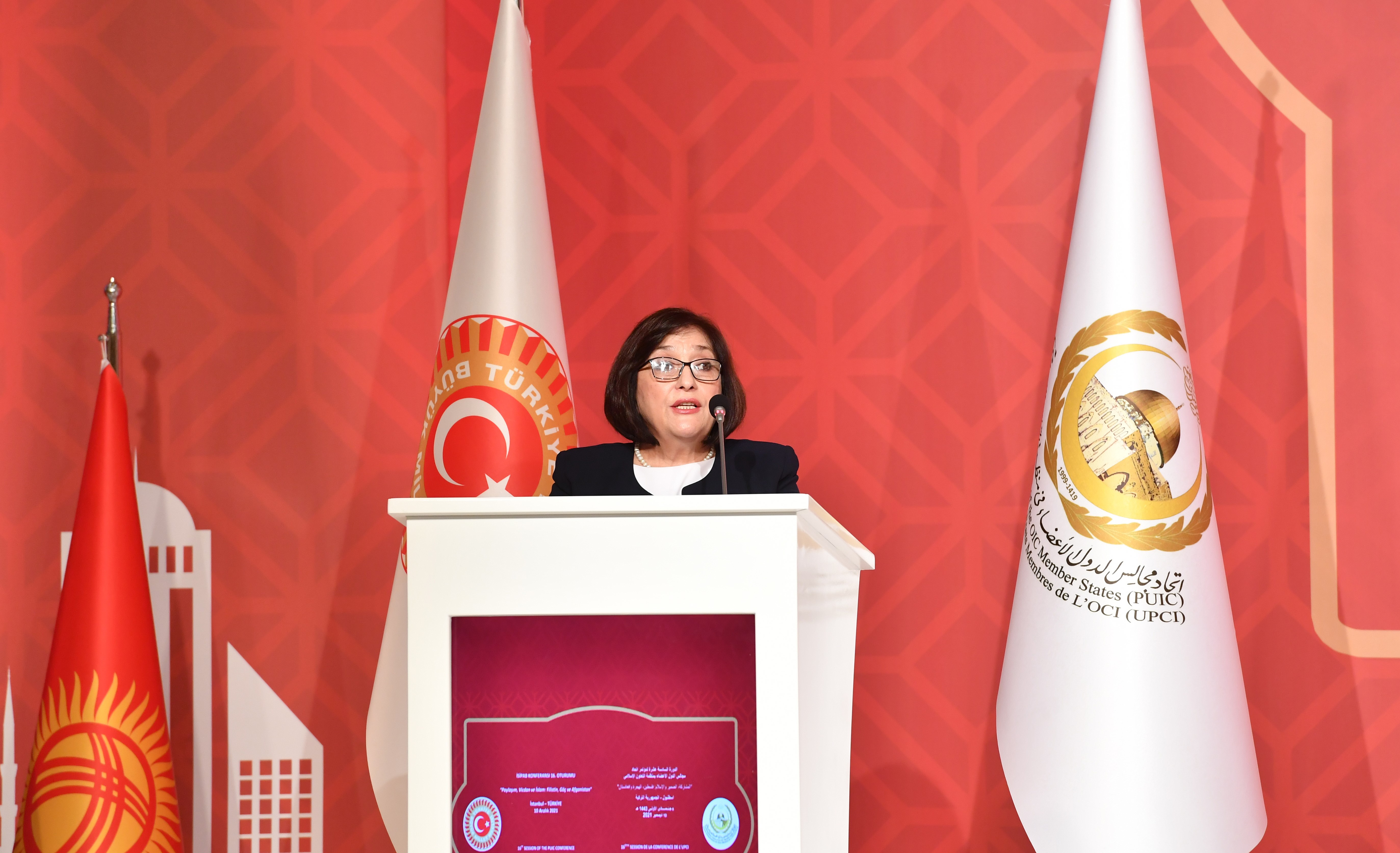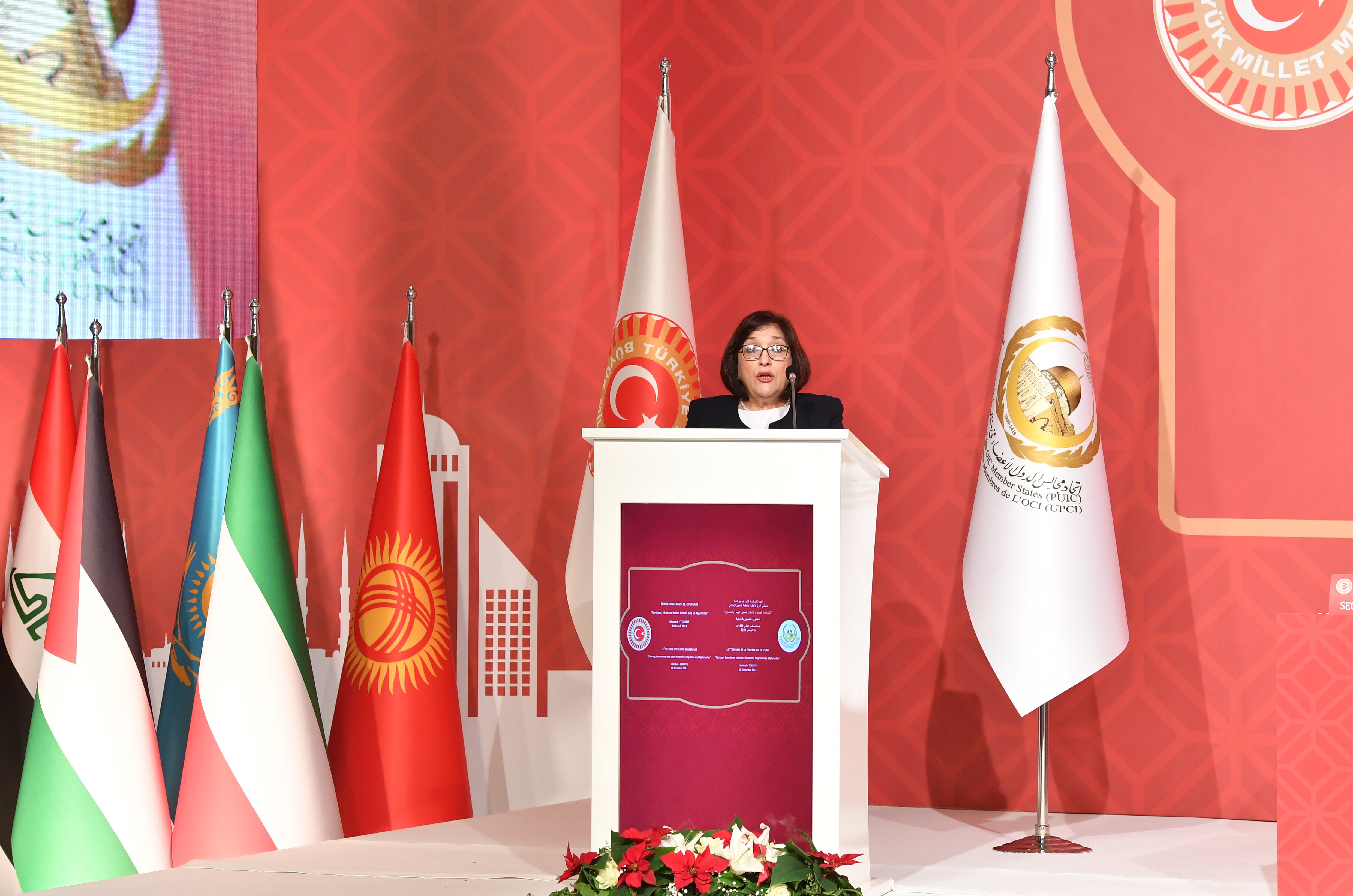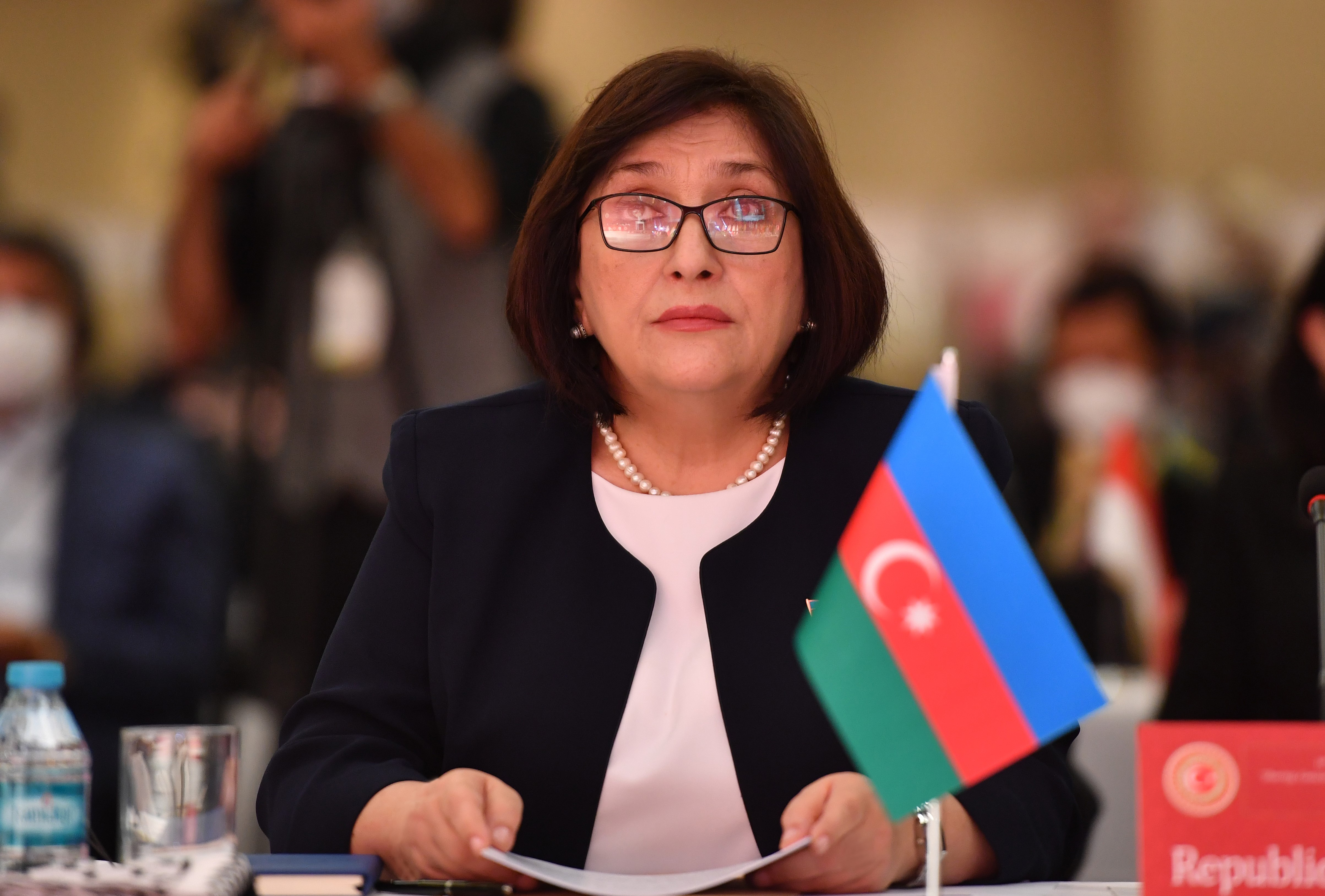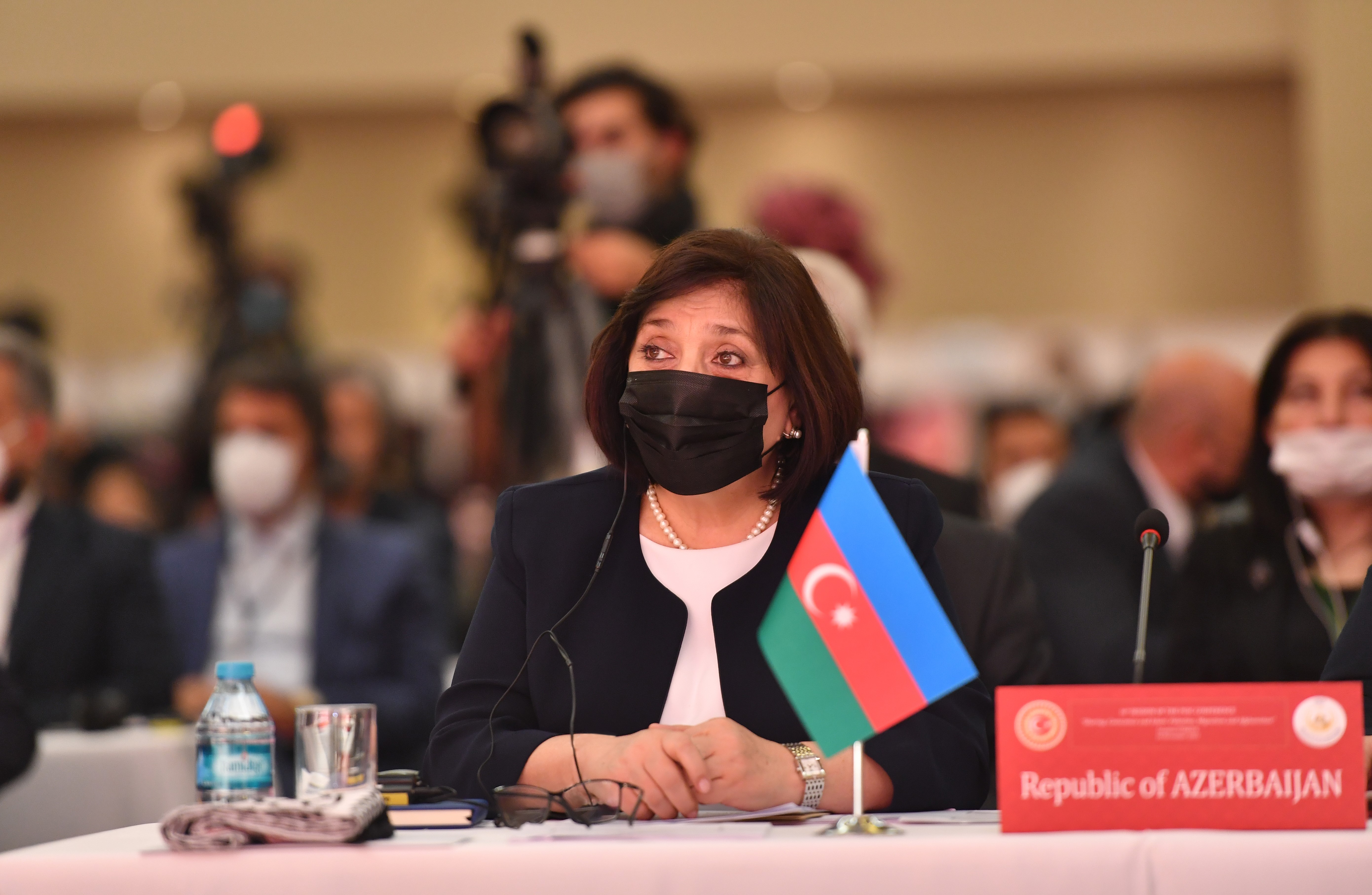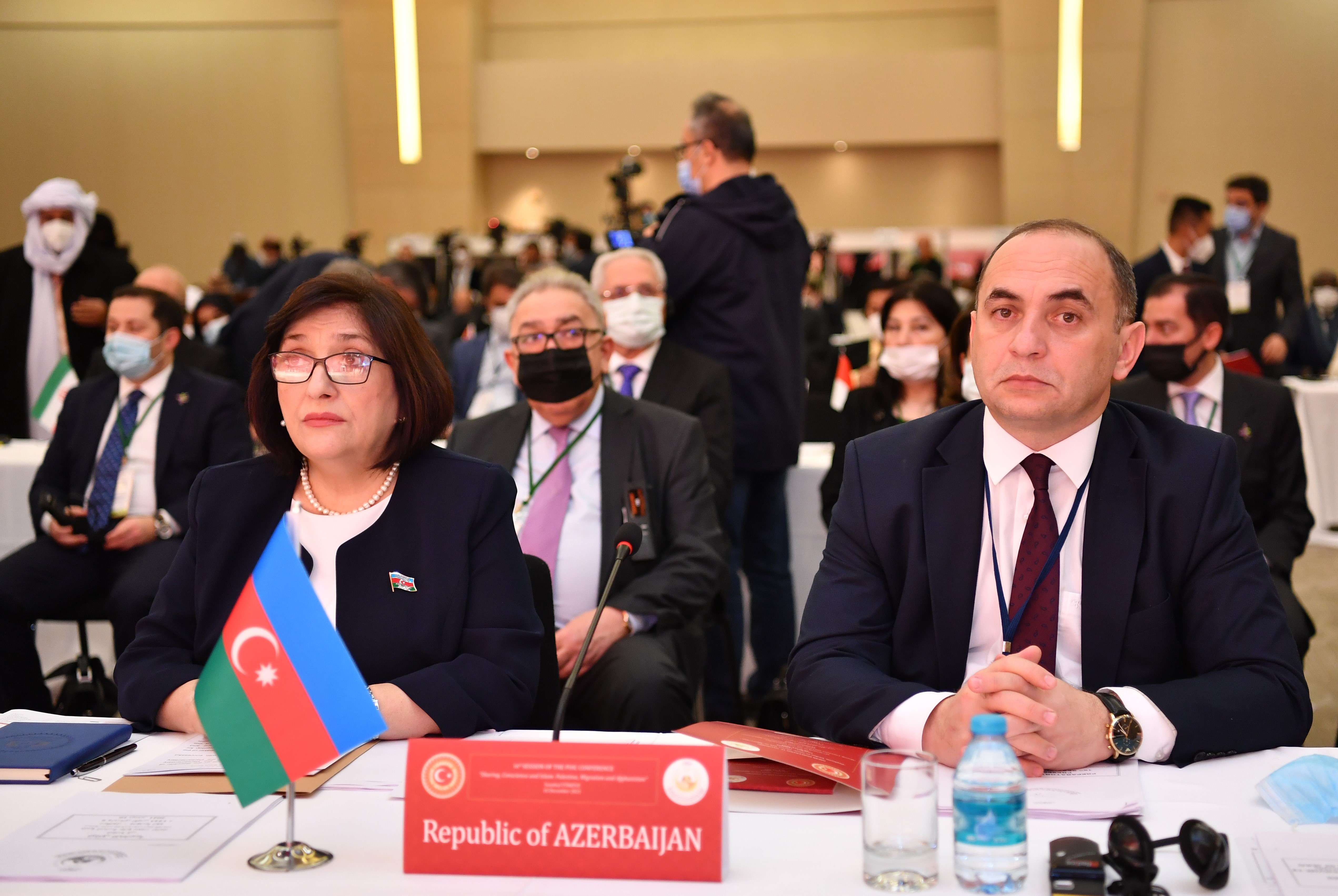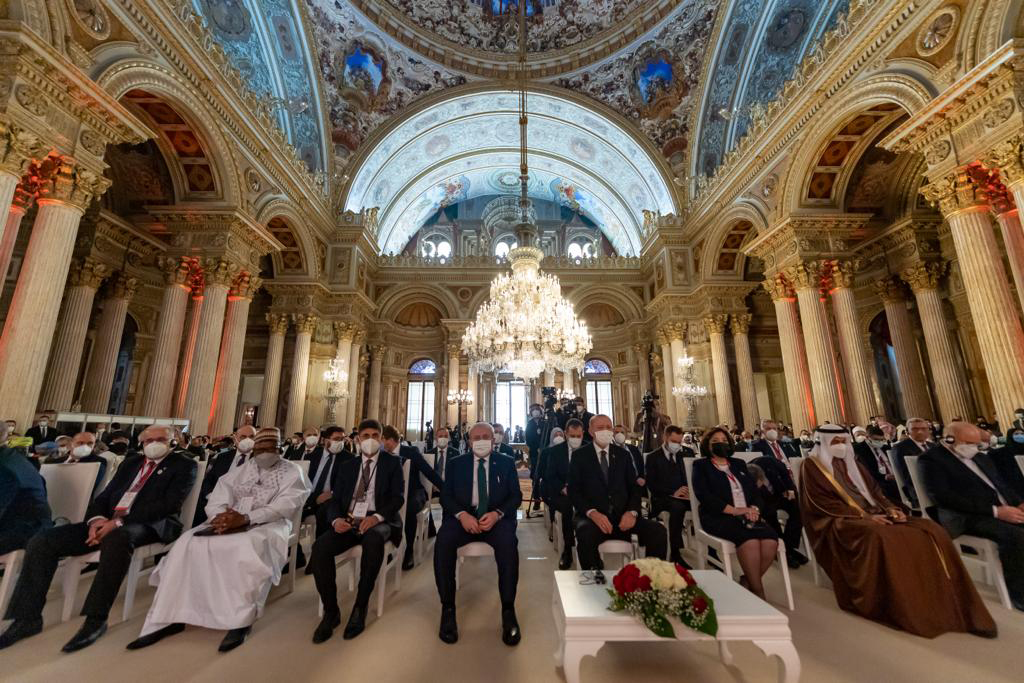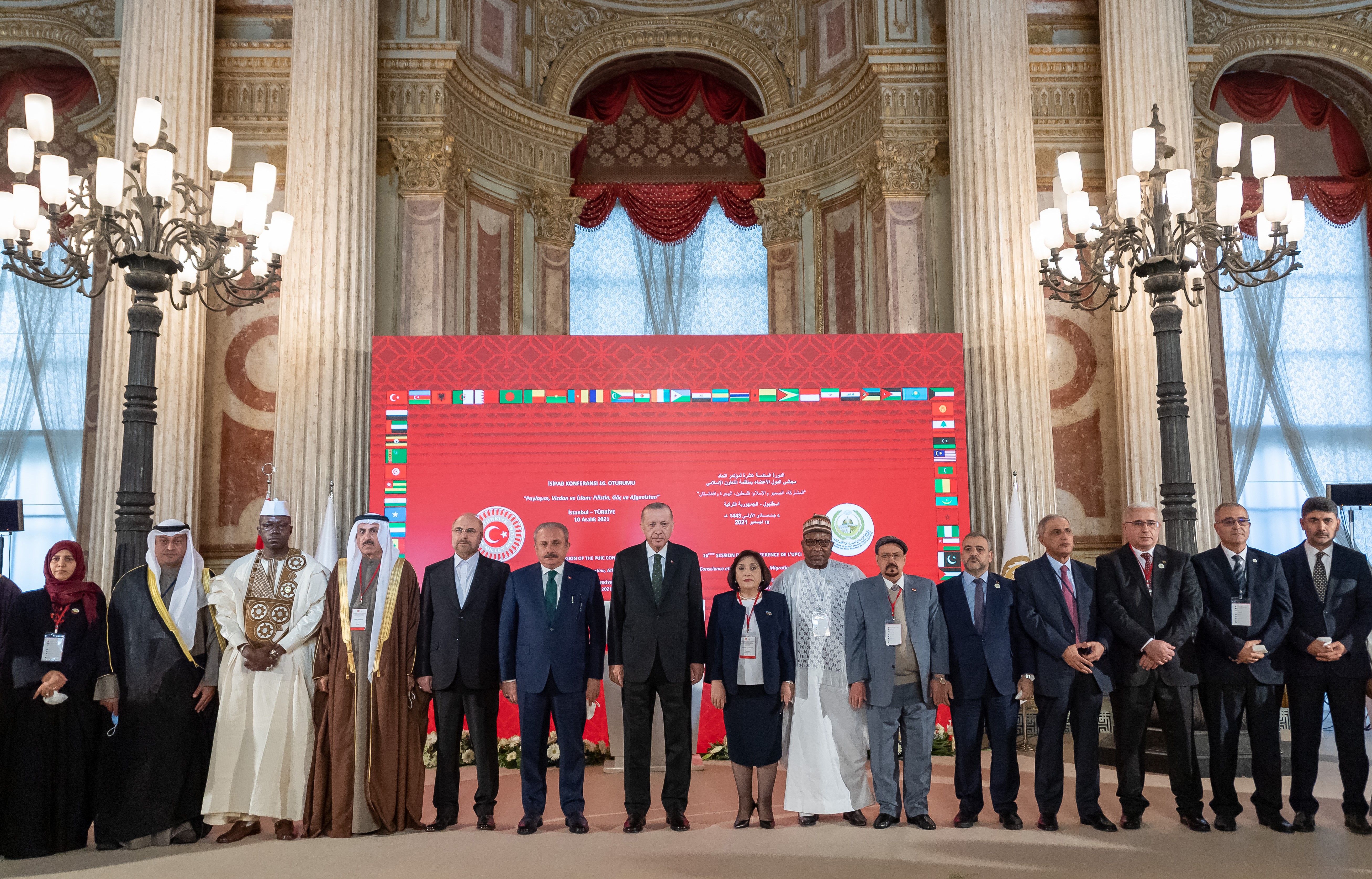Chair of Milli Majlis Sahiba Gafarova Speaks at 16th Conference of Parliamentary Union of Organisation of Islamic Co-operation
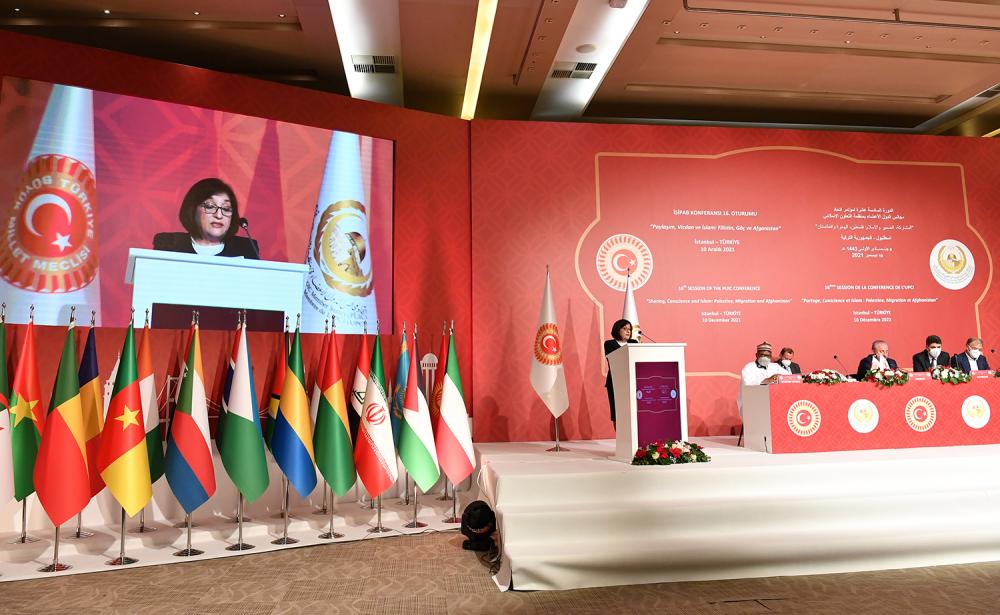
As we have reported, the parliamentary delegation led by Chair of the Milli Majlis Sahiba Gafarova are in Istanbul to take part in the 16th conference of the Parliamentary Union of the Organisation of Islamic Co-operation.
The opening ceremony of the conference took place on 10 December; President of the Republic of Turkey Recep Tayyip Erdogan spoke at it.
Then, Sahiba Gafarova took the floor. She began by welcoming all the attending parliamentary delegations on behalf of the Milli Majlis and expressing a confidence that Turkey’s chairmanship would greatly contribute to the strengthening of the PUIC.
Madame Speaker added that Azerbaijan considered bilateral and multilateral cooperation with Islamic countries to be important.
‘Two days ago, we celebrated the 30th anniversary of Azerbaijan's membership in the Organisation of Islamic Co-operation. Together with constant support given to Muslim countries in international organisations, we also contribute to the strengthening of Islamic solidarity through numerous events held in Azerbaijan. I believe parliamentary dimension is gaining special importance, which will further deepen relations between our countries,’ Mrs Gafarova was saying.
Islamophobia is one of the most serious threats in the world today, continued the leader of the Milli Majlis, adding that Azerbaijan strongly condemned this trend and called for a fight against it. In this regard, the decision of the Organisation of Islamic Co-operation to designate 15 March as an International Day to Combat Islamophobia upon the initiative of the brotherly Pakistan is greatly welcomed. Sahiba Gafarova then opined with emphasis that stronger solidarity, dialogue and co-operation were needed in dealing with the problems that the Islamic World is facing.
‘In line with the theme of today’s conference, I would like to pay attention to the issues of Palestine, Afghanistan and migration. Azerbaijan consistently supports the peaceful settlement of the Palestinian-Israeli conflict on the basis of the principle of two states with East Jerusalem being the capital of the State of Palestine. This stance has been unambiguously expressed at international organisations.’
‘The issue of peace and stability in Afghanistan bears implications for a wider region. That is why the elimination of the humanitarian consequences of the situation in Afghanistan is of utmost importance.’
‘International community should also look at the migration problem from a wider perspective and deal with the root causes of the problem. Speaking about migration, it is impossible not to mention the efforts of Turkey, which has been hosting approximately 5 million refugees for almost 10 years. But, unfortunately, those efforts have not been duly praised and supported.’
Sahiba Gafarova mentioned that Azerbaijan itself, too, had been facing the problem of forced migration. As you know, Armenia kept under occupation almost 20 per cent of the territory of Azerbaijan for about 30 years. Armenia carried out ethnic cleansing in these territories that resulted in more than one million Azerbaijanis becoming refugees and internally displaced persons.
‘During the occupation, Armenia deliberately wiped out all our cities and villages, and vandalised all historical, cultural and religious sites of Azerbaijan. In total disrespect and hatred to all the Muslims, Armenia has destroyed and desecrated our mosques and used them as stables for pigs and cows. 65 out of 67 mosques situated in the formerly occupied lands had been destroyed, and the two remaining had been seriously damaged. Likewise, all the graveyards in those territories had been vandalised.
The four resolutions adopted by the UN Security Council in 1993, the resolutions and decisions of Non-Aligned Movement, the Organisation of Islamic Co-operation, OSCE and the other relevant international organisations demanding immediate, complete, and unconditional withdrawal of the armed forces of Armenia from Azerbaijan’s occupied territories, were ignored by Armenia, unfortunately.
The 44-day Patriotic War that started as a result of Armenia’s military provocations ended with the complete victory of Azerbaijan and the signing of a capitulation act by Armenia on 10 November 2020. Azerbaijan itself implemented the UN Security Council resolutions, norms and principles of international law, and restored its territorial integrity and historical justice.
‘I would like to express my gratitude to the brotherly Turkey and Pakistan, which expressed political support to Azerbaijan from the first days of the war. And also the PUIC and Secretary General Mr Mouhamed Khouraichi Niass for the support given to Azerbaijan’s just cause.’
In the final part of her speech the leader of the Milli Majlis said, ‘Azerbaijan had started the large-scale restoration programmes in the liberated territories that would enable more than 1 mn of our citizens to return their homes. The signing of a peace agreement between Armenia and Azerbaijan on the basis of mutual recognition of sovereignty and territorial integrity, and delimitation and demarcation of the borders will lead to normalisation of relations and restoration of all communications in the region. However, Armenia should stop violating its obligations and refrain from actions that will aggravate the situation and damage prospects for peace and stability in the region.’
Deliberations followed.
The Press and Public Relations Department
The Milli Majlis



